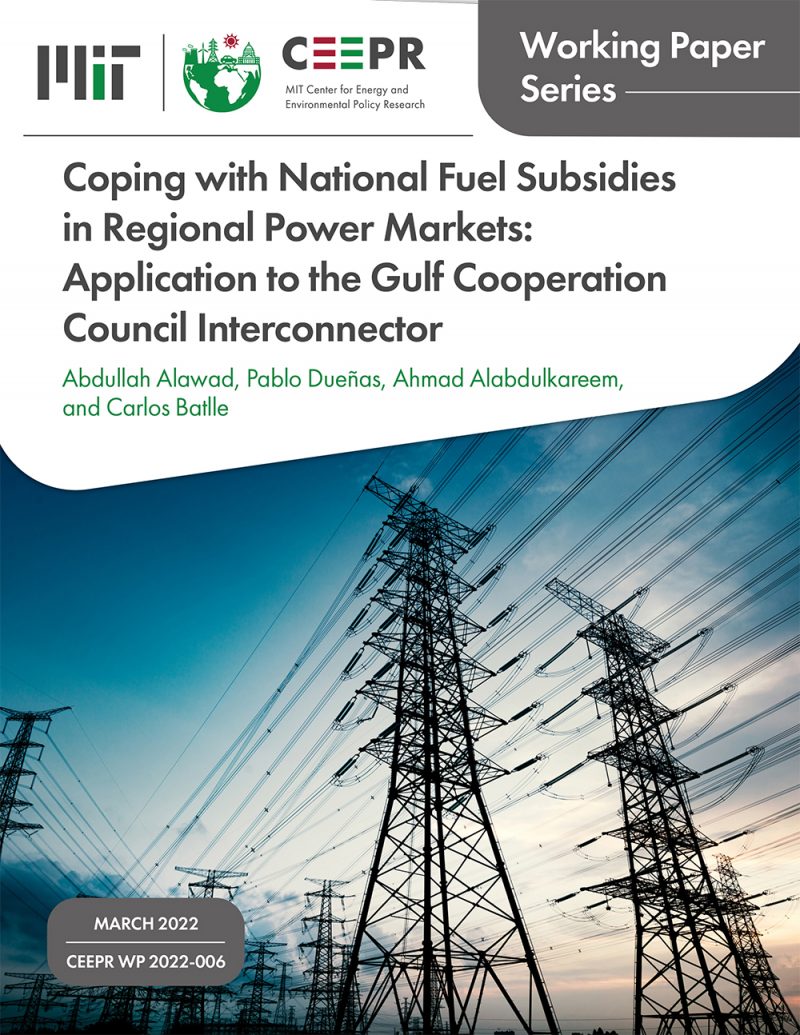Coping with National Fuel Subsidies in Regional Power Markets: Application to the Gulf Cooperation Council Interconnector
Abdullah Alawad, Pablo Dueñas, Ahmad Alabdulkareem, and Carlos Batlle
March 2022
Transnational power market design and development are impacted by economic, social and political factors that must inevitably be addressed. One of the most prominent and widespread such factors are energy subsidies, i.e. measures aimed at keeping prices for electricity end users below market levels. Traditionally regional markets regulation has aimed at banning such subsidies, to properly ensure healthy competition, in order to maximize short- and long-term economic efficiency. However, as we evidence by reviewing the different regional markets implemented not just in the EU and the US but worldwide, experience increasingly shows that the trend does not lead to the removal of these subsidies, but quite the contrary. As a result, at this stage, it is worth looking for innovative regional market design solutions to take the best of the integration of different power system, while coping with the existence of this sort of national subsidization mechanisms.
In particular, this article explores how the efficiency of regional electricity markets can be optimized when coexisting with national fuel subsidies. To achieve this aim, we propose original and simple bidding conditions and market clearing methods whereby one of two prices may be attributed to each generating unit depending on whether final delivery targets domestic or export demand. The proposal, designed to favor transitioning to integrated regional markets as hopefully countries gradually eliminate subsidies, is illustrated with a full-scale case study, the Gulf Cooperation Council Interconnection, where the reluctance to comply with that limitation might be underlying governments’ unwillingness to commit to regional integration.
Keywords
Regional power markets; fuel subsidies; power trading; unit commitment; economic dispatch.



